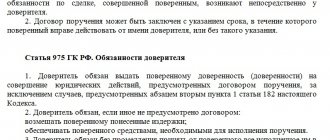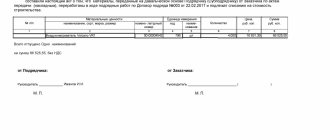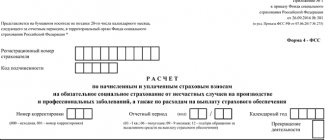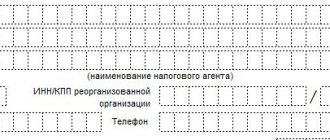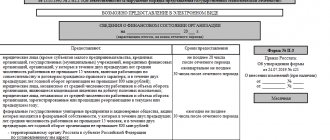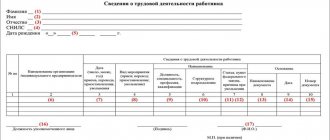A power of attorney with the right to transfer is a document that contains the possibility of transferring the right to act on behalf of the principal to a third party. At the same time, a power of attorney can provide almost any right of action, for example, with the right of substitution, a power of attorney can be issued to represent interests in court or to receive documents in the relevant structure. The rights that the principal grants to his representative can be transferred to third parties in whole or in part, which must be reflected in the document. It should be noted that, especially with partial delegation, all powers that are permitted to be delegated must be listed in full.
Important! The possibility of transferring the issued powers must be directly indicated in the content of the power of attorney provided, otherwise the transfer of rights to third parties from the principal's representative is unacceptable.
What is the transfer procedure?
There is no legal concept of subrogation. However, all the basic characteristics established by the science of civil law will help to obtain a suitable definition.
Reliability is distinguished by the following characteristics:
- This is a one-sided deal. It is performed by the original attorney in order to provide more effective representation of the interests of the principal.
- The form that a power of attorney issued by substitution must comply with must be drawn up in accordance with the requirements established by law.
- This document is completely derived from the original power of attorney. The powers under it cannot be expanded. In addition, the validity period of such a power of attorney cannot extend beyond the time limits of the main document.
Considering these characteristics, a subpoena can be defined as a unilateral transaction made by the original attorney to transfer powers under a power of attorney, the form of which must comply with the requirements of the law, and the content and term cannot go beyond such parameters established in the original document.
Cancellation of this power of attorney is possible both together with the main one and separately from it.
Accompanying a lawyer during the transfer procedure
Help from a specialist with 20 years of experience!
+7
Terms of Use
- The principal is notified of this as soon as possible.
- The recipient of the power of attorney is notified of the identity of the principal.
- The document is notarized. The exceptions are subcontracts to receive wages, awards for inventors and various authors, pensions, benefits or student scholarships, and bank deposits. In this case, the contract can be certified by the relevant organization.
- The period of reassignment does not exceed the duration of the main power of attorney.
- The person who has received the rights is obliged to personally participate in all actions performed for which he has the authority.
- The transfer is carried out in full compliance with all laws of the country and the terms of the contract.
- The power of attorney has not previously participated in reassignment, or the terms of the document that previously participated in a similar process stipulate the possibility of further reassignment.
- Forced by any circumstances to protect the personal interests of the principal.
- The document directly indicates the possibility of reassignment or this case is established at the legislative level.
- The contract is drawn up in accordance with all requirements and rules.
Types of powers of attorney executed in the order of substitution
There are several classifications of such documents. Depending on how many times such actions were performed, they are distinguished:
- initial reassignment, which is the 2nd link in the chain of relevant documents;
- subsequent transfer of trust, serving as the 3rd and further link in this chain.
Depending on what form is used, there are:
- simple written power of attorney;
- power of attorney that has been notarized.
Depending on the possibility of cancellation:
- standard power of attorney;
- irrevocable power of attorney.
Related documents
- Sample. Power of attorney for action abroad
- Sample. Power of attorney for action abroad
- Sample. Power of attorney for a regional representative of a brokerage office
- Sample. Power of attorney for reserving living space
- Sample. Power of attorney to conduct inheritance business
- Sample. Power of attorney for conducting inheritance matters abroad
- Sample. Power of attorney to conduct legal proceedings
- Sample. Power of attorney to conduct legal proceedings when considering a claim
- Sample. Power of attorney to buy items from a pawnshop
- Sample. Power of attorney to conclude a securities purchase and sale agreement
- Sample. Power of attorney for exchange of living space
- Sample. Power of attorney for sending luggage
- Sample. Power of attorney for the transfer of material and monetary assets (annex to the trust agreement)
- Sample. Power of attorney for the purchase of a car
- Sample. Power of attorney for baggage collection
- Sample. Power of attorney to receive a document
- Sample. Power of attorney to receive salary
- Sample. Power of attorney for obtaining a warrant
- Sample. Power of attorney to obtain a certificate of inheritance
- Sample. Power of attorney to receive inventory items. Form No. m-2a
Grounds for which it is possible to delegate powers
The main reason is the indication of such a possibility in the original document. A power of attorney with the right of substitution must have an extremely clear formulation of this power. As a rule, we are talking about the phrase “the powers under this power of attorney can be transferred to other persons.”
The other reason is exceptional. This is understood as the effect of circumstances forcing the original trustee to make a transfer of trust. These may include a serious illness or injury that limits the ability of this person, as well as various types of natural disasters, wars and states of emergency.
The main criterion is the significant difficulties of the original attorney in defending the interests of the one who issued the document. Such grounds are not subject to application if, at the request of the trustee, a corresponding prohibition is expressly established.
Termination
The power of attorney agreement and the right of subrogation terminate in the following cases:
- Refusal of a citizen who has received rights from the powers given to him.
- Termination of the contract by the principal.
- Death, incapacity or partial incapacity of the principal.
- Death or incapacity of the person to whom the power of attorney document was issued.
- Inadequate fulfillment of their obligations by the parties.
- Abuse of authority by one of the parties.
- The validity period of the subassignment agreement has expired.
- The expiration of the general power of attorney agreement.
- Termination of the activities of the legal entity that issued the document.
- The process of reorganization of a legal entity.
- Bankruptcy of one of the parties participating in the conclusion of the agreement.
Notarization of powers of attorney issued by substitution
The law establishes the possibility of attracting a subsequent representative only when the notarial form of the document is used. The notary is expected to competently evaluate the authority in the original power of attorney. In addition, persons acting on a sub-assignment basis will have documents whose legal force is unquestioningly recognized by all participants in civil transactions.
The actions of such a representative will not raise unnecessary questions. The use of any other registration method is prohibited.
An exception to this requirement are powers of attorney of a legal entity. This applies to both headquarters employees and other departments. The heads of a branch or representative office of a legal entity can also issue such powers of attorney. At the same time, they are also subject to the rules regarding the indication of such powers in the original document.
About the seal on the power of attorney
In accordance with Federal Law No. 82 of April 6, 2015, business companies are relieved of the need to own a seal. However, there are a number of requirements for powers of attorney to represent interests in court.
So, in accordance with Art. 53 of the Code of Civil Procedure of the Russian Federation, the powers of representatives of a legal entity (LLC, JSC), in the absence of a seal on the power of attorney, must be confirmed by the constituent documents of the principal or their notarized copies.
If the constituent documents contain information that the principal has a seal, but did not put it on the power of attorney, the latter will be declared invalid.
Accordingly, if the constituent documents do not contain notifications about the presence of a seal, then the power of attorney will be valid without a seal. Principals for whom the law requires a seal (for example, municipal and unitary enterprises) certify the powers of attorney issued by them with the signature of the head and seal.
Notice of transfer
The law protects the interests of the original principal. For this reason, the attorney executing the subsequent power of attorney has the responsibility to communicate such information to the person represented.
The message must be transmitted within a reasonable period. It must include all information about the new trustee, including name, address and available methods of communication.
If this duty is not fulfilled, the original representative will be exposed to the risk of liability for the dishonest and unskillful acts of the subsequent attorney.
Author of the article
Nuances of drafting and certification
When transferring rights, it is necessary to fully list all the powers authorized for the new trustee. This power of attorney, unlike an ordinary one, must be certified by a notary , otherwise the transfer of rights is legally impossible (this rule applies only to individuals ).
The principal must be notified in writing before he completely loses the opportunity to influence this decision.
Responsibility for the actions of fiduciaries rests entirely with the principal, except in cases where the latter is not notified in writing about the operation, then the person who drew up the sub-trust agreement will bear responsibility.
You can download a free sample paper here
In addition to the main points, this type of document should contain:
- Place and time of certification of the main power of attorney by a notary, registration number.
- Full name and name of the office where the certification took place.
- Information about the person who issued the document.
- For legal entities - position.
- List of powers declared under the agreement.
- The validity period of the document is written in capital letters.
- List of powers allowed to be delegated.
For certification, you need the passports of both parties, a copy of the main power of attorney and other documents that may be requested by the notary in certain situations.
An uncertified document is considered completely invalid. A power of attorney and subassignment lose their force if the principal or the person who delegated the authority terminates the agreement for any reason.
Powers of an attorney
If it is necessary to authorize another attorney to perform one or more functions when drawing up a sub-power of attorney, all of them must be specified. All powers under this agreement can be transferred. To do this, it is necessary to transfer to the new document all the functions of the first representative specified in the main notarized power of attorney.
Attention! In this case, the rule applies: the representative cannot entrust another person with more functions than he himself has.
If the principal has not clearly defined the terms of reference of the first representative, he can issue a power of attorney with either broad or limited functions.
Limitation of powers can be expressed in different ways:
- limiting activities to one specific organization;
- limiting the number of possible actions;
- inability to make transactions the amount of which exceeds that specified in the power of attorney.
There are also three ways in which general powers can be designated when delegated:
- Indicate the possibility of exercising all procedural rights. This provides the representative with unlimited powers.
- Provide all procedural rights provided by law, except for some. In this case, the representative will not be able to inform the court about the fabricated evidence.
- Grant the representative limited procedural rights. Several such powers are listed. The representative will be able to act only within the specified framework.
Who assures?
The transaction must be certified by a notary (clause 3 of Article 187 of the Civil Code of the Russian Federation). This ensures control over the activities of the representative and protects the interests of the principal. The registration procedure does not require a notarial form in the following three cases:
- If the procedure is formalized by legal entities or their representative offices, as well as heads of branches (clause 3 of Article 187 of the Civil Code of the Russian Federation). Then the signature of the head of the company or other responsible person is sufficient.
- Representation in court is required, and the trustee has verbally or in writing approved the new representative, thereby transferring his authority to him.
- The right of certification, on an equal basis with notaries, is enjoyed by the persons listed in paragraph 2 of Art. 185.1 of the Civil Code. If a document for transfer of authority is drawn up on behalf of a citizen by his representative and certified by one of the persons performing the duties listed in the law, then it does not need to be certified by a notary.
Form and form to fill out
A standard power of attorney form contains the following fields:
- Full name of the first representative;
- residential address of the person drawing up the document for transfer of power;
- Full name of the principal;
- residence address of the principal;
- details of the source document (date, register number, name of the notary office, license number and date of issue);
- Full name of the new representative;
- residential address of the new attorney;
- text containing a list of all powers that are delegated;
- the period for which the reassignment is issued;
- a notary stamp containing all the necessary details and the date of certification.
When is release not possible?
According to the law, reassignment is impossible in three cases:
- The document is drawn up to receive wages, royalties, benefits, scholarships, pensions, postal correspondence and is certified by the institution in which the originator of the original document is treated, works or studies (Clause 5 of Article 187 of the Civil Code of the Russian Federation).
- The representative has been provided with an irrevocable general power of attorney and it may clearly indicate that the functions can be delegated. Then the representative has the right to transfer functions to another person (clause 3, article 188.1 of the Civil Code of the Russian Federation).
- If a document is drawn up for transfer, then the functions on it cannot be transferred to a third party, unless a different procedure is specified in the main document or is not regulated by law (clause 7 of Article 187 of the Civil Code of the Russian Federation).


